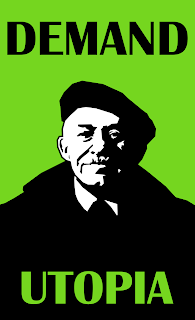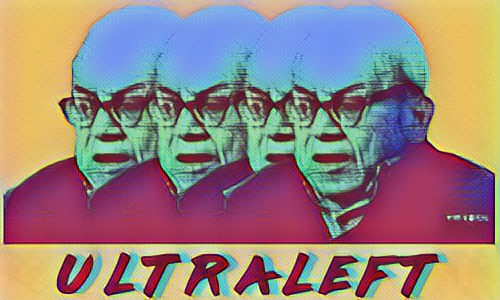Enlightened Ecology
Throughout his life, prophetic American philosopher Murray Bookchin created social ecology as a comprehensive social program for the challenges of our present era. Through tireless teaching, speaking, organizing, and writing, he presented a humanist vision of ecology based on community, direct democracy, and the better promises of the Enlightenment, showing how we could transform our society into one that is free and egalitarian.
Bookchin’s abandonment of the anarchist label was not a renouncement of his radical libertarian ideals, but a symbolic act at showing how little meaning there is in ideological dogmas and ideological purity. As a true child of Enlightenment, he was most interested in the power of vibrant and developing ideas.
His thirst for knowledge and research resembled the spirit of the age of Enlightenment. Bookchin refused to remain entrapped in old ideological interpretations of the world, which is evident from his secular interest in ecology. Traditional leftist fascination with factories could not distract him from the environmental degradation provoked by industrial capitalism. Long before climate change took over the news and the human influence on it widely accepted, Bookchin began warning humanity about the disastrous environmental impact its activities had. But unlike various mysticists and primitivists who blamed human nature as such, he noted that it was the way human societies are organized that determines humanity’s attitude towards nature and began researching alternative forms of social organization that could pave the way towards an ecological society. His work produced a theoretical body that he termed Social Ecology, which nowadays is gaining momentum among climate activists.
Bookchin drew a direct link between social organization and human interaction with nature. The way societies treated their natural environment was a reflection of the way their interrelations were structured and thus suggested that statecraft and capitalism led to the creation of a reckless and wasteful anthropological type. He then explored linkages between direct democratic forms of societal organization that could result in a stewarding and symbiotic relation with nature.
As a true son of Enlightenment, he recognized the importance of science, which often led him to clash with deep ecologists and primitivists. He recognized the liberatory potential of technology. For Bookchin, the technological development in a capitalist setting was shaped by the latter’s values and driven to serve its purposes. Thus, technologies that could potentially be made to put an end to scarcity were instead used for profits and production of artificial shortages. He knew that the road to a post-scarcity society would have to be based on a libertarian political transformation.
He could see that it was not simply a question of a new economic model or a technological fix that could put an end to injustice and inequality. Instead, Bookchin throughout his life emphasized the need of ultimately creating a democratic setting in which power is being distributed horizontally and everyone can participate as equals in the management of all spheres of social life. This helped him develop a sophisticated political vision called libertarian municipalism, based on real historic experiences and aimed at provoking social change here and now.




Comments
Post a Comment